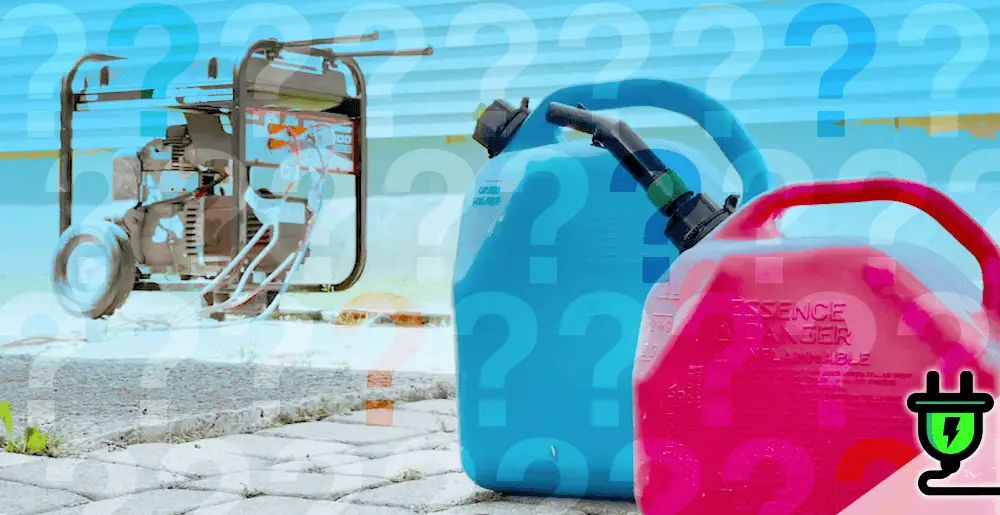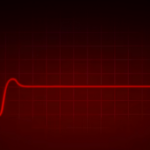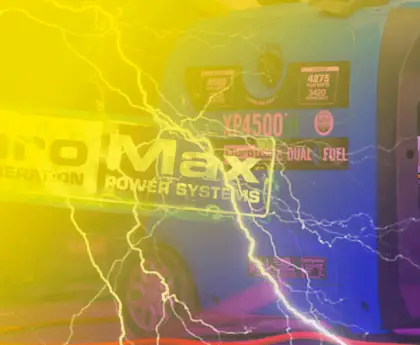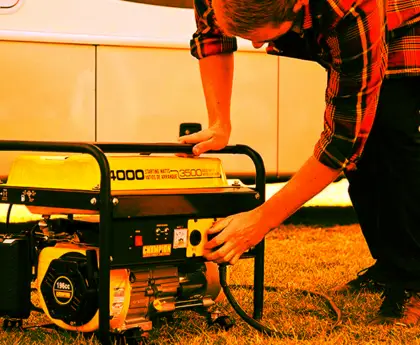Are you wondering how much gas does a generator use? You’re not alone, most people are often surprised how much fuel different generators will use.
A gasoline generator with a capacity of 5 kilowatts consumes about 0.75 gallons of fuel every hour. In comparison, an 8-kilowatt diesel generator uses approximately 0.5 gallons of fuel per hour. A propane generator with a 6-kilowatt rating burns around 1.42 gallons of fuel every hour. Meanwhile, a 7-kilowatt natural gas generator consumes roughly 118 cubic feet of fuel per hour.
This article will demystify the fuel consumption rates of different generators, helping you understand the costs associated with running your generator and guide on how to manage it efficiently.
Ready to become a smart generator owner? Let’s dive in!
Factors Affecting Generator Gas Consumption
The type of generator and the type of fuel used, as well as the load being powered, are all factors that can affect how much gas a generator consumes.
Generator type
Generators come in different types, each with a unique fuel consumption pattern. Take gasoline generators for example; they tend to use between 0.6 and 1 gallon per hour.
Comparatively, propane generators are usually more efficient, consuming about 0.4 gallons per hour on average.
Therefore, choosing the right generator type can influence how much gas is used significantly. For hefty power demand, some large-scale generators hold up to a thousand gallons of fuel and burn up to three gallons an hour!
From this information it’s clear that understanding the type of generator you choose plays a huge role in determining its gas consumption rate.
Fuel type
Different types of generators require different fuel types to operate. The fuel type you choose for your generator can affect its gas consumption rate and overall efficiency. Gasoline generators, for example, typically use between 0.6 and 1 gallon per hour, while propane generators use about 0.4 gallons per hour.
Natural gas generators have their own specific fuel requirements as well. It’s important to consider the fuel type when estimating how much gas a generator will consume and factor it into your calculations accordingly.
The choice of fuel also impacts the cost of running a generator. Gasoline prices tend to fluctuate more compared to propane or natural gas, which may influence your decision if you’re looking for long-term savings on operating costs.
Additionally, some generator models are designed specifically for certain types of fuels, so it’s essential to select the appropriate fuel type that matches your generator’s specifications in order to ensure optimal performance and efficiency.
Load
The load placed on a generator directly affects its gas consumption. The more power required from the generator’s engine, the more gasoline it will consume. For example, a 6-kilowatt generator burns approximately 1.42 gallons of fuel per hour, while a smaller 5000 watt standard generator consumes about 0.75 gallons of gas per hour on average.
So, when using a generator, it’s important to be mindful of the load you put on it in order to optimize fuel usage and minimize costs.
Gas Consumption Rates: Per Hour and Per Day
Gas consumption rates for generators can vary depending on various factors. On average, gasoline generators typically use between 0.6 and 1 gallon of fuel per hour. For example, a 5000 watt standard generator consumes about 0.75 gallons of gas per hour.
Propane generators, on the other hand, use about 0.4 gallons per hour.
It’s important to note that the specific amount of gas a generator uses can also depend on the load placed upon it and the type of fuel used. A higher load or more power required will result in increased gasoline consumption.
Additionally, some larger generators can hold up to a thousand gallons of fuel and may consume as much as three gallons per hour.
Understanding your generator’s gas consumption rate is crucial for managing costs and ensuring you have enough fuel supply when needed. By monitoring your generator’s usage and considering factors such as load requirements and efficient models, you can optimize your gas consumption and keep costs down.
Remember to take into account these factors when estimating how much gas your generator will need over an hourly or daily period without compromising its function or performance.
Comparing Gas Consumption for Different Generators
Gasoline generators, propane generators, and natural gas generators all have different rates of fuel consumption. Read on to find out which type of generator is the most fuel-efficient for your needs.
Gasoline generator
Gasoline generators are commonly used for powering appliances and equipment during power outages or in remote locations. These generators typically consume between 0.6 and 1 gallon of gasoline per hour, depending on the specific model and load placed on them.
For example, a five-gallon gasoline generator can use at least 0.75 gallons of gas per hour. It’s important to note that the more power required from the generator’s engine, the more gasoline it will consume.
So if you’re using a high-wattage appliance or running multiple devices simultaneously, expect your gasoline usage to be higher.
Propane generator
A propane generator is an alternative to gasoline generators, using propane as its fuel source instead. Propane generators have the advantage of consuming about 0.4 gallons of fuel per hour, which is less than what gasoline generators typically use.
This makes them more fuel-efficient and cost-effective in the long run. The specific amount of gas a propane generator uses can still vary depending on factors such as the wattage of the generator and the load placed on it.
Natural gas generator
A natural gas generator is a type of generator that uses natural gas as its fuel source. These generators are typically more fuel-efficient compared to gasoline or propane generators, meaning they can generate the same amount of power while using less gas.
The exact amount of gas consumption for a natural gas generator can vary depending on factors such as the wattage of the generator and the load placed on it. However, on average, a natural gas generator can use around 1 cubic foot (0.0295 cubic meters) of natural gas per kilowatt-hour (kWh) of electricity generated.
This makes them a cost-effective option for those who have access to a supply of natural gas.
Tips to Keep Gas Costs Down
Properly maintain and tune-up the generator to ensure optimal fuel efficiency. Optimize the load usage by only powering essential appliances and devices. Consider using more fuel-efficient generator models for cost savings.
Properly maintain and tune-up generator
Regular maintenance and tune-ups are essential for ensuring optimum performance and fuel efficiency of your generator. By properly maintaining your generator, you can reduce gas consumption and avoid unnecessary costs.
It is recommended to follow the manufacturer’s guidelines for maintenance, which may include tasks such as cleaning or replacing air filters, checking spark plugs, inspecting fuel lines for leaks, and changing engine oil regularly.
These simple steps will help keep your generator running smoothly and efficiently, saving you money on gas in the long run.
Optimize load usage
To optimize load usage on your generator and minimize fuel consumption, it’s important to understand that the more power required from the generator’s engine, the more gas it will consume.
By carefully evaluating your electrical needs and prioritizing essential appliances, you can avoid overloading the generator and wasting unnecessary fuel. Consider turning off or unplugging non-essential devices when running the generator to reduce its workload.
This strategic approach will help you maximize fuel efficiency and ultimately save on gas costs.
Consider using more fuel-efficient generator models
Fuel efficiency is an important factor to consider when choosing a generator. By opting for more fuel-efficient models, you can save money on gas costs over time. For example, propane generators tend to use less fuel compared to gasoline generators, consuming only about 0.4 gallons per hour on average.
Similarly, natural gas generators are known for their high fuel efficiency. Additionally, some newer generator models offer advanced technologies and features that enhance fuel efficiency without compromising performance.
So, if you’re looking to keep your gas costs down in the long run, it’s worth considering investing in a more fuel-efficient generator model.
How much gas does a generator use FAQs
How much gas does a generator use?
The amount of gas a generator uses depends on its size and the load it is powering. Generally, generators consume between 0.5 to 2 gallons of gas per hour.
Can I use any type of gas for my generator?
No, it is important to use the recommended type of fuel specified by the manufacturer for your specific generator model. Using the wrong type can damage your generator or affect its performance.
How long will a full tank of gas last in a generator?
The runtime of a full tank of gas in a generator varies based on its size and load. On average, smaller portable generators can run for around 8-10 hours with a full tank, while larger standby generators can run for multiple days.
Are there any tips for conserving fuel usage in my generator?
To conserve fuel usage in your generator, turn off unnecessary appliances or devices that are not being used and only power essential items during an outage or emergency situation. Additionally, properly maintaining your generator helps improve fuel efficiency.
Conclusion: How much gas does a generator use?
Simply put, the amount of gas a generator uses can vary depending on factors such as the type of generator, fuel used, and load placed on it. Gasoline generators typically consume between 0.6 and 1 gallon per hour, while propane generators use about 0.4 gallons per hour.
By properly maintaining the generator, optimizing load usage, and considering more fuel-efficient models, you can help keep gas costs down.






